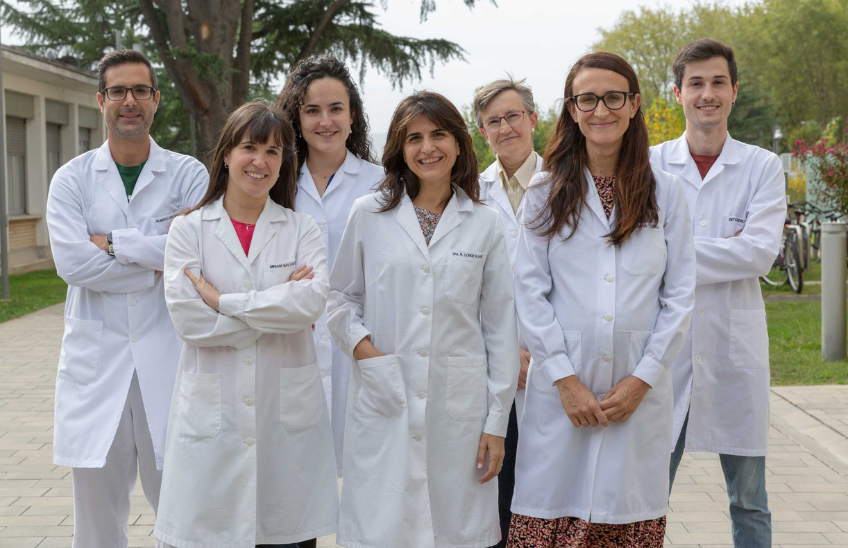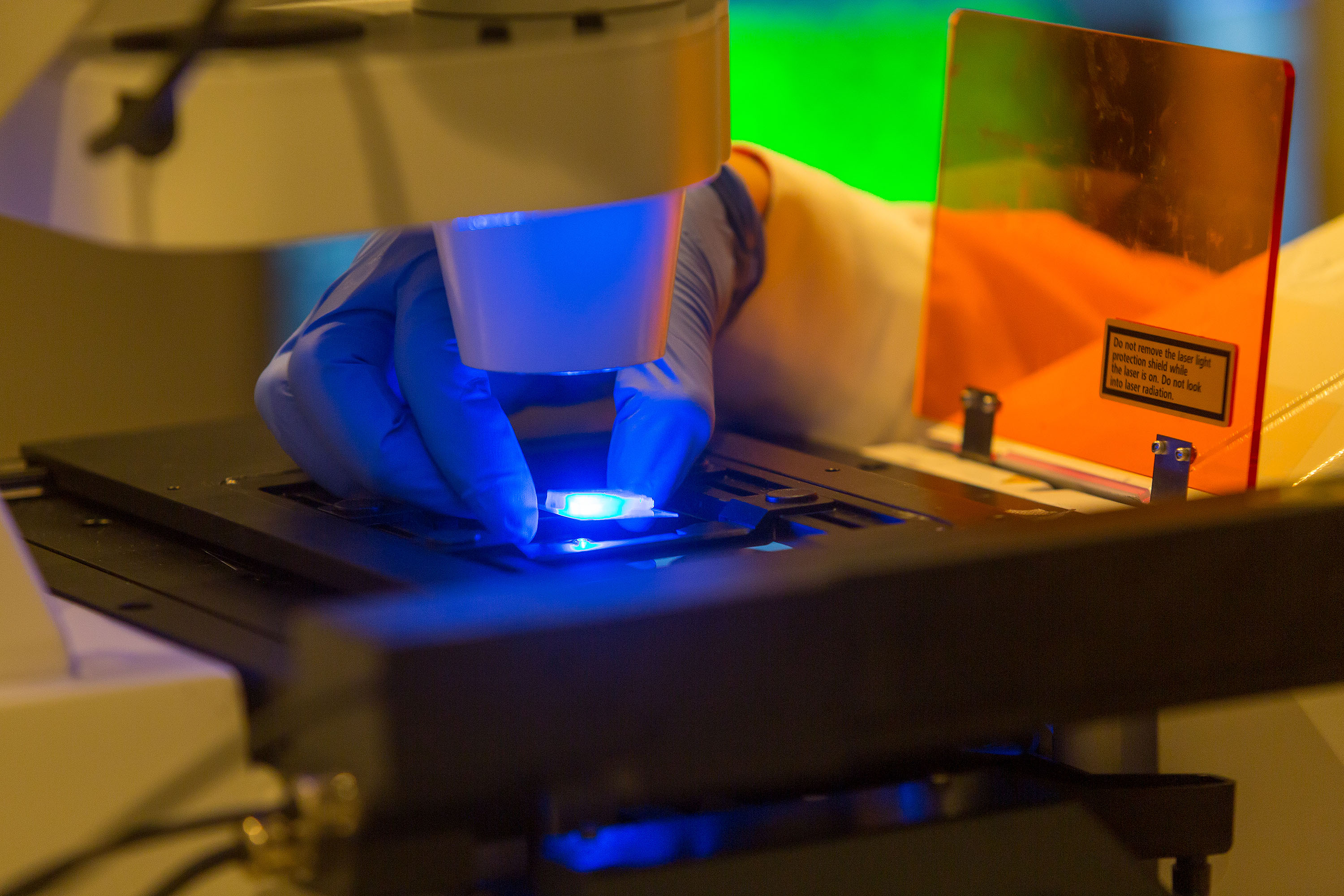Reprodivac, the project that aims to develop vaccines against zoonoses in pigs and cattle, obtains funding from the EU Horizon program.
The University participates in research together with 16 other partners from 7 European countries.

PhotoManuelCastells/Swine brucellosis research team of the University of Navarra. From left to right: in the first row, Miriam Salvador, Raquel Conde and Amaia Zuñiga. In the second row, Alberto Delgado, Maite Loperena, Maite Iriarte and Aitor Elizalde.
08 | 11 | 2022
Reprodivac, the project of research in which researchers from the Institute of Tropical Health (ISTUN) of the University of Navarra participate together with 16 other partners from 7 European countries has obtained funding of 6 million euros from Horizon Europe, the European Union's funding program for research and innovation until 2027. The goal of the project in which the researcher Raquel Conde participates is to develop different vaccines against infectious diseases of cattle and pigs, in particular the University participates in the development of a vaccine against swine brucellosis and in the improvement of the techniques for the diagnosis of the infection. The aim is also to strengthen feeding systems and improve animal welfare and reduce the use of antimicrobials in agriculture.
"The main challenge of the research is to do it in an interdisciplinary way, with a multi-pathogenicapproach so that different experts can combine knowledge to obtain vaccines against four of the most economically important abortive diseases of livestock. This project also aims to protect public health with a "One Health" perspective,"said Raquel Conde.
Over the next five years, project partners from institutions and centers in Italy, the United Kingdom, Spain, France, the Netherlands, Germany and Switzerland will work to focus on four of the most economically important livestock abortifacient diseases: enzootic abortion of sheep (EOE), one of the most common infectious causes of abortion in small ruminants worldwide, caused by Chlamydia abortus; Q Fever, a major highly contagious zoonotic disease of worldwide impact caused by Coxiella burnetii; swine brucellosis caused by Brucella suis, a neglected disease with high zoonotic impact in American and Asian countries, and with the potential to re-emerge in Europe; and porcine reproductive and respiratory syndrome (PRRS virus), manager of major losses in the swine industry worldwide.
Infectious diseases in livestock have a significant economic (the value of the global animal health market is equivalent to about €40 billion) and animal welfare impact ; and threaten food safety and public health. For example, in the swine sector, annual losses from reproductive and respiratory syndrome virus (PRRSV) in the United States and Europe alone are in excess of $600 million and €1.5 billion, respectively.
The consortium spans academia and industry, with complementary expertise including structural biology, microbiology, immunology and veterinary sciences. The centers and institutions participating in project are: Italian National Agency for New Technologies, Energy and Sustainable Economic Development, from Italy; the Ecole Normale Supérieure de Lyon, France; Wageningen University and Research from the Netherlands; the University of Lleida, Spain; CEP (Consorci Centre d'estudis Porcins, Spain); CEVA (CEVA Animal Health, France), FLI (Friedrich-Loeffler Institut, Germany, partner), quotation (research center y Tecnología Agroalimentaria de Aragón, Spain), Universidad de Navarra, Spain; UMU (Universidad de Murcia, Spain, partner), EPFL (Ecole Polytechnique Fédérale de Lausanne, Switzerland; GSP (Associacio Porcsa-Grup de Sanejament Porcì, Spain), CZV (CZ Vaccines S.A., Spain), GDX (Global DX Ltd, United Kingdom), TPI, The Pirbright Institute, United Kingdom), MRI (Moredun Research Institute, United Kingdom).
The new vaccines and diagnostic tests will be developed and made available to users by the industrial partners participating in project. Thus, by using the latest technologies in the development of these vaccines and tests, Reprodivac will improve animal health and welfare, productivity and sustainability of the livestock sector, as well as human health.




